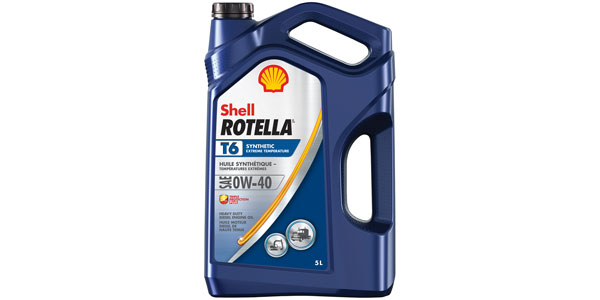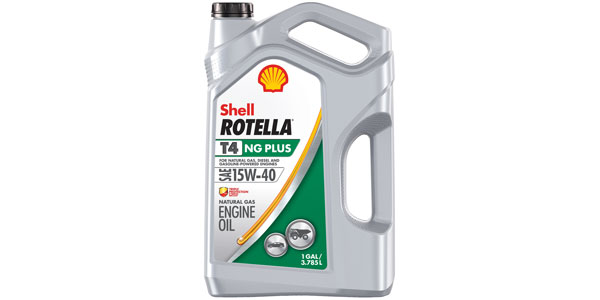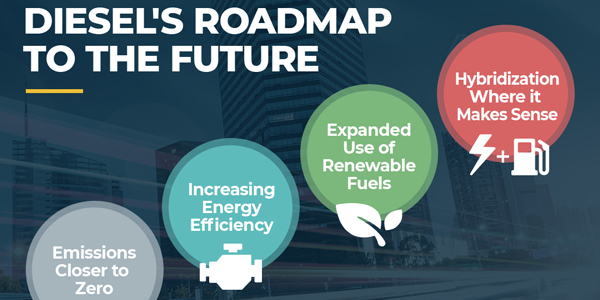How oil prices impact fleet costs
Oil prices go up and down at the slightest whim. Volatility can be nerve-wracking. And while its impact on diesel is apparent, how can oil prices affect the bottom-line cost of heavy-duty truck engine oil? The answer is: It doesn’t really.

Shell to release T6 full synthetic 0W-40 oil for extreme cold
Shell Lubricants is introducing Shell Rotella T6 Full Synthetic 0W-40 heavy-duty diesel engine oil. This new oil is an upgrade/relaunch of the Rotella T6 full synthetic 0W-40, and now meets API CK-4 requirements.

Shell introduces new natural gas engine oil
Shell Lubricants is introducing Shell Rotella T4 NG Plus 15W-40 heavy-duty engine oil for natural gas trucks.

A focus on lower viscosity engine oils
Fuel expenses can make up 30 to 40% of a heavy-duty fleet’s overall operating costs. This means that any reductions in fuel consumption can be extremely important, with even small decreases in cost having an impact on a company’s bottom line. Owners face a continual task of cutting costs, so running their fleets in a

The importance of freight-ton efficiency
Of all the different metrics that can be used for measuring the energy required to move goods—miles per gallon, ton-miles per gallon, gallons per ton-mile and freight ton efficiency—freight-ton efficiency (FTE), measured in ton-miles per gallons, is the most effective in measuring the amount of energy required to transport a load of goods from Point A to Point B.

REG: ‘Using biodiesel blends is a great way to dramatically reduce emissions in diesel-powered vehicles’
There’s a lot of buzz about new fuels for medium- and heavy-duty trucks. While research and development for cleaner fuels is always a good idea, the reality is liquid fuels will power U.S. fleets for decades to come.

Frito-Lay to replace diesel fleets in sustainability project
To help achieve PepsiCo’s mission to reduce its absolute greenhouse gas (GHG) emissions by 20% by 2030, Frito-Lay, a division of PepsiCo, announced that it aims to replace all of its existing diesel-powered freight equipment with zero-emission (ZE) and near-zero emission (NZE) technologies at its Modesto, Calif. manufacturing site.

Diesel Technology Forum congratulates inaugural Diesel Progress Awards winners
The Diesel Technology Forum congratulates all the winners of the inaugural Diesel Progress Awards, especially forum members Caterpillar, Volvo Penta of the Americas and John Deere. The awards celebrate innovation in making internal combustion engines and machines more efficient, powerful and productive.

Watch: Keep wax buildup out of your diesel engine in cold weather
Cold weather is especially difficult on diesel engines. This is because a percentage of diesel fuel is made of paraffin wax molecules that give diesel that little extra little “umph” in the stored energy department. While these wax molecules are completely harmless in warmer temperatures, if the fuel gets cold enough this wax can crystallize and form a gel-like consistency that will clog the truck’s fuel filters.

Eight steps to maximize truck efficiency and reduce emissions
Advancements in vehicle and engine technology, communication systems, fleet management programs and more allow fleet operators to improve performance, reduce emissions and reduce operating costs.

Fueling choices: Fleets’ use of alternative fuels continues to increase
It is clear that growth in the use of alternative fuel and electric vehicles by fleets continues to expand. At the same time, an ongoing concern about the availability of a fueling and charging infrastructure is still giving some fleets a reason to hold off on deploying the latest offerings from a range of manufacturers.

EPA rule-making for heavy-duty truck emissions will not be accelerated
The Environmental Protection Agency (EPA) was recently asked to accelerate the timeline for enacting new regulations regarding NOx emissions from trucks. While the EPA admits that more stringent standards are needed to reduce nitrogen oxide (NOx), emissions from heavy-duty trucks, buses and other diesel vehicles, the agency rejected calls from a coalition of state

